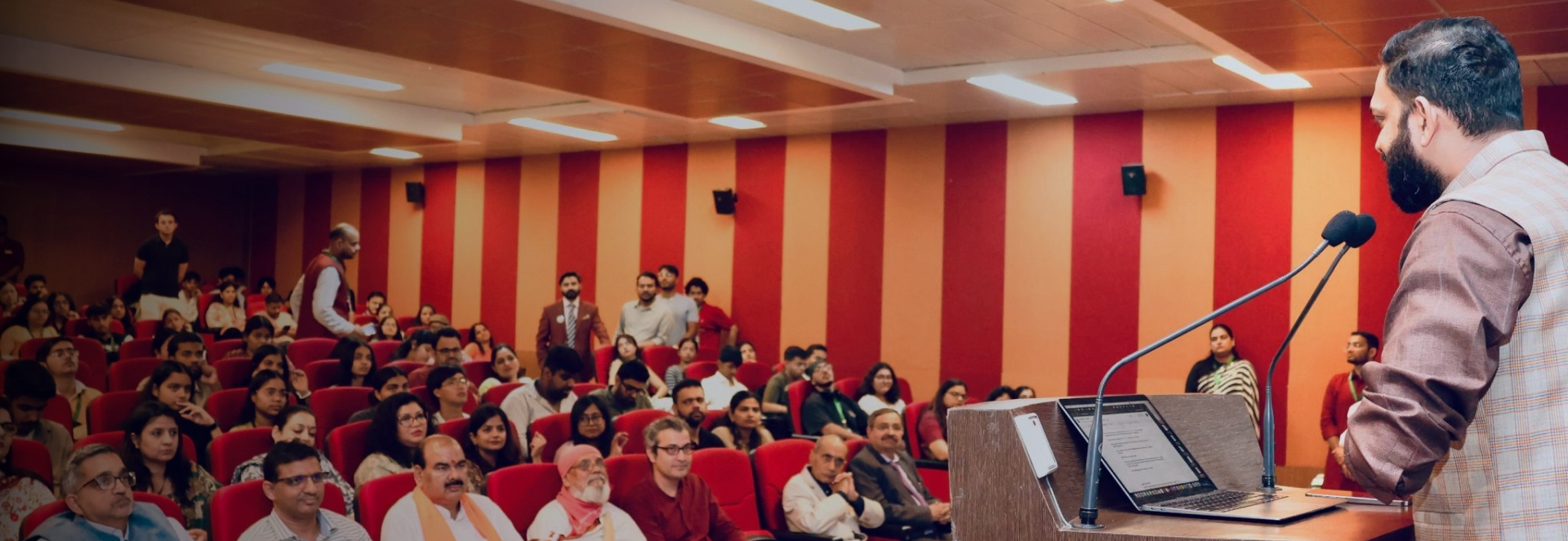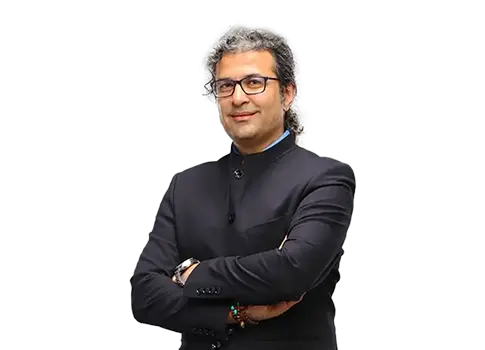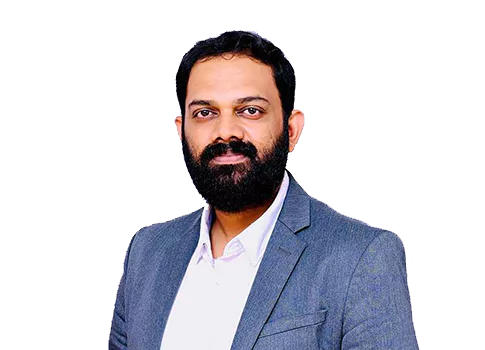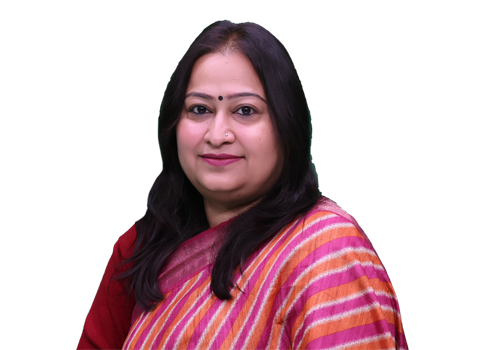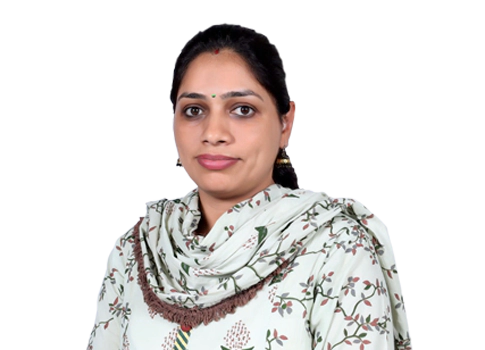- Home
- Events & Activities
- New Age Legal Dynamics
About the Conference
The exponential advancement of digital technologies has precipitated profound transformations across societal, economic, and legal domains, necessitating a critical re-examination of existing regulatory frameworks. The pervasive role of social media in shaping public discourse, the proliferation of artificial intelligence in decision-making processes and the escalating concerns surrounding data privacy and digital surveillance underscore the imperative for robust legal mechanisms that balance innovation with fundamental rights and democratic principles.
This conference aims to foster an in-depth discussion on the evolving legal, ethical and regulatory challenges arising from the intersection of social media and artificial intelligence in the modern era. Key themes include the governance of algorithmic decision-making, the jurisprudential tensions between platform accountability and freedom of expression and the evolving nature of intellectual property in the digital economy. The increasing reliance on artificial intelligence (AI) generated content in domains such as education, journalism and commerce further raise complex questions of authorship, authenticity and ethical oversight. Moreover, the rapid development of decentralized ecosystems including the metaverse and smart contracts, challenges traditional legal conceptions of liability, enforcement and dispute resolution.
With the objective of providing a platform for academicians, scholars, practitioners and policymakers to explore these pressing legal challenges and propose forward-looking solutions, the UPES School of Law is pleased to announce the Call for Papers for the International Conference on New Age Legal Dynamics: Social Media and Artificial Intelligence, which will be held at the UPES, Kandoli Campus, Dehradun, Uttarakhand, on 19-20 September 2025 as an in-person event.
About The Centre for Post Graduate Legal Studies
The Center for Post Graduate Legal Studies (CPGLS) at the UPES School of Law is a hub for advanced legal education and research, designed to equip students with the expertise required to navigate the evolving legal landscape. Through specialized postgraduate programs, CPGLS integrates rigorous academics with global best practices, ensuring graduates are prepared for both academia and industry.
CPGLS offers a diverse range of specializations tailored to contemporary legal challenges:
- Corporate and Commercial Law – covering corporate governance, mergers and acquisitions, and financial regulations.
- Alternate Dispute Resolution (ADR) – focusing on arbitration, mediation, and negotiation techniques.
- Intellectual Property Laws – addressing patents, copyrights, trademarks, and legal aspects of digital innovation.
- Environmental and Energy Laws – tackling climate change, sustainability, and energy policies.
- Cybersecurity and Digital Laws – providing expertise in data protection, cybersecurity frameworks, AI regulations, and digital transactions.
Beyond academic excellence, CPGLS serves as a platform for thought leadership in legal education. Through conferences and research initiatives, it fosters discussions on critical legal issues emerging from technological advancements—such as AI ethics, data privacy, misinformation, and global regulatory frameworks. By engaging with scholars, industry leaders, and policymakers, CPGLS contributes to shaping a forward-thinking legal ecosystem for an interconnected, technology-driven world.
Objectives of the Conference
At the digital crossroads, the interplay between communication, law and society demands thoughtful reflection and proactive governance. Therefore, this conference seeks to bring together legal scholars, technologists, policymakers, and practitioners:
- To examine the transformative role of social media, artificial intelligence, and global interconnectedness in reshaping communication and societal norms.
- To encourage interdisciplinary dialogue to address pressing concerns such as privacy, data protection, misinformation, surveillance, algorithmic bias, and accountability in the digital age.
- To discuss the role of legal systems and policies in balancing innovation, ethical safeguards, and public interests, with insights from global benchmarks like General Data Protection Regulation (GDPR), 2016 and the European Union Artificial Intelligence Act, 2024.
- To bring together legal scholars, technologists, policymakers, and practitioners to exchange ideas, share experiences and develop comprehensive solutions to digital-era challenges.
- To chart actionable pathways for building a more inclusive, sustainable and equitable digital landscape through proactive governance and innovation.
Sub Themes
Exploring the impact of social media
- Social media in shaping public discourse, activism, and commerce.
- Legal and ethical challenges such as misinformation, hate speech, and algorithmic bias.
- Balancing freedom of expression with reasonable restrictions in democratic societies frameworks and safeguarding rights of the marginalized sections of the society.
Examining the role of government and law enforcement
- The role of governments and agencies in combating cybercrimes and ensuring digital inclusion.
- Legal frameworks to regulate state surveillance and protect civil liberties.
-
Possible collaboration between international stakeholders to address transnational challenges.
Rethinking the role of law in the digital era
- Existing gaps in legal frameworks and possible adaptive laws to address emerging technologies.
- Platform accountability, misinformation, and cross-border cyber regulations.
-
Role of judicial oversight in upholding constitutional rights in the digital age.
Artificial Intelligence in education
- Transforming teaching, learning, and assessment in the digital era while addressing accessibility and ethical concerns.
- Digital literacy for modern society.
- Online education and accreditation standards.
-
Responsible publishing practices in the era of AI generated content.
Addressing ethical and legal challenges in artificial intelligence
- Ethical implications of AI, including bias, accountability, and transparency.
- Legislative and regulatory efforts to ensure responsible artificial intelligence development.
- Balancing the societal benefits of artificial intelligence with its associated risks.
-
Antitrust issues including algorithmic collusion, data access barriers for smaller competitors, and the potential for artificial intelligence driven market manipulation
Understanding privacy and data protection
- Effectiveness of current privacy and data protection laws.
- Best practices for safeguarding personal data in a globalized digital economy.
- Emerging threats to privacy in the context of advanced data analytics & surveillance technologies.
- Exploring the legal gaps in smart contracts.
-
Balancing privacy and data protection for consumer rights.
Promoting ethical and responsible journalism
- Role of press in fostering an informed society while navigating the digital revolution.
- Balancing the right to freedom of speech and expression and the ethical responsibilities of the media.
-
Various strategies to combat sensationalism, fake news, and biases, emphasizing the importance of integrity and accountability in journalism.
Evolving intellectual property laws in the digital era
- Intellectual property challenges in protecting digital assets.
- Artificial intelligence generated works
- Open-source innovation
- The role of law in the metaverse- regulating virtual spaces: intellectual property, privacy, and dispute resolution in digital ecosystems.
- Role of artificial intelligence in intellectual property filing and prosecution: challenges in evidence, transparency, authenticity etc.
The above list is indicative, and authors are encouraged to submit abstracts on other relevant topics as well.
The three best papers, selected from all themes, will be awarded special recognition.
Who should attend the Conference?
To achieve the objectives outlined, the conference invites participation from a diverse set of stakeholders, including but not limited to:
- Academics and Researchers
- Legal Professionals
- Technologists and Innovators
- Government Representatives
- Media Practitioners
- Civil Society Organizations
- Post Graduate Students and Emerging Scholars
Submission Guidelines
Abstract: An abstract of 350 words (excluding 4-5 keywords), on the above-mentioned themes, are invited, and submitted as Word (.doc/.docx) documents.
There is no restriction on the number of co-authors, however, each author must register separately for the conference after the acceptance of their abstract is communicated.
Multiple submissions are permitted, however, only those submissions that meet the evaluation criteria will be accepted.
- Full Paper:
- Word Count: Papers should be between 4000 and 6000 words (excluding footnotes).
- Font Size and Style: Kindly use Times New Roman 12 point for the main text and 10 point for footnotes.
- Headings: The heading should be used as per the following style:
First heading: 14 pt, Bold, Center
Second heading: 12 pt, Bold, Left aligned
Third heading: 12 pt, Italics, Centre - Line Spacing: The line spacing of the main text of the paper should be 1.5 and words between footnotes should be 1.
- Indent: Left and Right indent should be 0.5 on both sides.
References: OSCOLA 4th Edition.
Quotations/ Quotation Mark: Quotations over 25 words should be indented. Double quota- tion marks should be used; single quotation marks should be used only for quotes within a quotation.
The submission should be the original work of the authors and must not be published elsewhere. The papers shall not exceed 10% similarity under any anti-plagiarism detection software.
The submissions must be accompanied by a cover letter bearing the following informa- tion that is full name of the author/s, designation of the author/s, institutional affiliation/s and contact details of the author/s.
Authors may be expected to revise their abstracts and research paper submissions based on reviews and comments received from the organizing team.
All authors need to register separately for the conference
Commitee
Distinguished Speakers
Important Dates
| Important Dates | |
|---|---|
| Abstract Submission Deadline | April 20, 2025 |
| Notification of Acceptance/ Rejection | April 30, 2025 |
| Registration Deadline for Authors | May 15, 2025 |
| Submission of First Draft of Full Paper | June 30, 2025 |
| Submission of Final Full Paper | July 30, 2025 |
Conference Schedule
| Days | Date | Schedule |
|---|---|---|
| Day 1 | September 19, 2025 |
|
| Day 2 | September 20, 2025 |
|
Registration Fee & Bank Details
- Beneficiary Name: UPES Purpose: ICESEL
- Bank Name: Yes Bank
- Bank Account: SB – 011594600000224
- Branch Code: 000115
- Branch IFSC Code: YESB0000115
- Swift Code: YESBINBB
- Branch Name: Ground Floor, 56, Rajpur Road, Dehradun
Indian Participants:
• For Academicians/ Professionals: 2000 INR
• For Research Scholars & Students: 1000 INR
Foreign Participants:
• For Academicians/Professionals: 100 USD
• For Research Scholars & Students: 50 USD
Contact
Dr. Charu Srivastava: 91-7500965323
Dr. Manika Kamthan: 91-9899337185
Dr. Hardik Daga: 91-8984489950
Ms. Priyanka Choudhary: 91-9953741547
E-Mail: upessolconf2025@ddn.upes.ac.in
